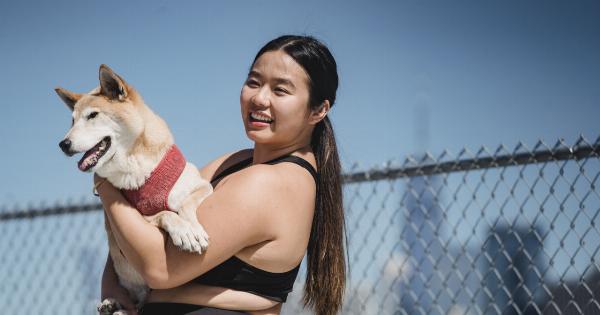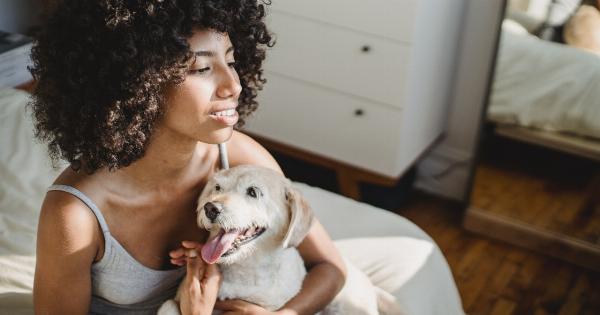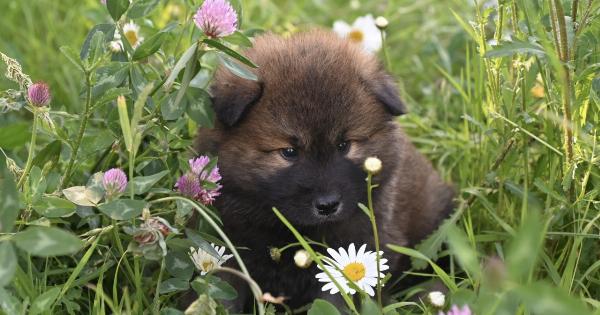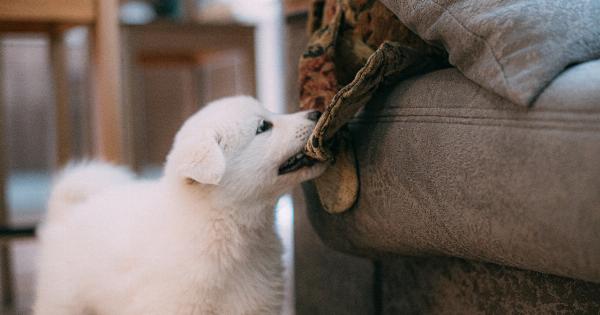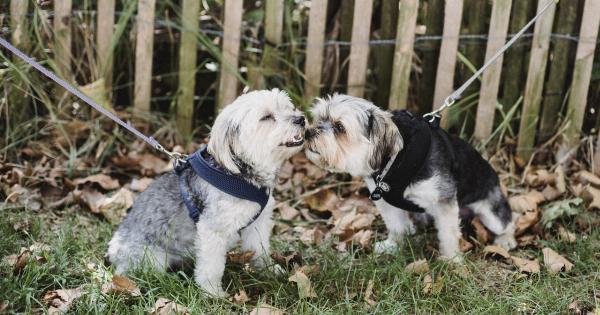Welcoming a new puppy into your home is always an exciting time. However, it’s not all fun and games. Puppies require a lot of training and patience to ensure they grow up to be well-behaved dogs.
From potty training to chewing to barking, there are several common puppy problems that you may encounter. Here are four simple fixes to address these issues:.
Potty Training
Potty training is one of the first and most important things you need to train your puppy. It can be a long process, but with consistent effort, your puppy can learn where to do their business. Here are a few tips to get started:.
- Create a schedule: Take your puppy outside at regular intervals throughout the day. Puppies should be taken out after they wake up, after eating or drinking, and after playing.
- Praise and reward: When your puppy goes potty outside, make sure to praise them and offer a treat. This positive reinforcement will encourage them to continue the good behavior.
- Supervise: Keep an eye on your puppy when they’re inside and take them outside if you see them circling or sniffing around.
- Be patient: Accidents will happen, so don’t get discouraged. Stay consistent in your efforts and your puppy will eventually learn where to go.
Chewing
Puppies love to chew on everything. From your shoes to the furniture, it’s important to redirect their chewing behavior before it becomes a problem. Here are some tips:.
- Provide chew toys: Make sure your puppy has plenty of chew toys to play with.
- Redirect: If your puppy starts chewing on something they shouldn’t, redirect them to their chew toy and praise them.
- Limit access: When you can’t supervise your puppy, limit their access to certain areas of the house to prevent destructive chewing.
- Be patient: Chewing is a natural behavior for puppies, so don’t expect them to stop overnight. Keep redirecting them and eventually they will learn what is and isn’t appropriate to chew on.
Biting
Puppies are also known for nipping and biting, especially during playtime. While their intentions may be playful, it’s important to teach them appropriate behavior. Here are some tips:.
- Redirect: As with chewing, it’s important to redirect your puppy’s biting behavior. Offer them a toy or chew bone instead.
- Be consistent: Everyone in the house needs to be consistent in their approach to biting behavior. If one person encourages rough play, your puppy may get confused about what’s acceptable.
- Use a command: Teach your puppy a command like “No biting” or “Gentle” when playing. If they don’t listen, remove yourself from the situation until they calm down.
- Be patient: Biting behavior is normal for puppies, so don’t get frustrated if it takes time to correct.
Barking
Dogs bark for a variety of reasons, but excessive barking can be a problem for you and your neighbors. Here are some tips to address barking behavior:.
- Distract: If your puppy is barking at something, try distracting them with a toy or treat.
- Provide exercise: A tired puppy is less likely to bark excessively. Make sure your puppy has plenty of exercise and playtime.
- Training: Teach your puppy a command like “Quiet” and reward them when they stop barking.
- Avoid punishment: Punishing your puppy for barking may actually make the behavior worse. Stay positive and consistent in your training.
Conclusion
Training a new puppy can be challenging, but the effort is well worth it. With patience and consistency, you can address these common puppy problems and have a well-behaved dog in no time.
Remember to stay positive and provide plenty of praise and rewards for good behavior.




